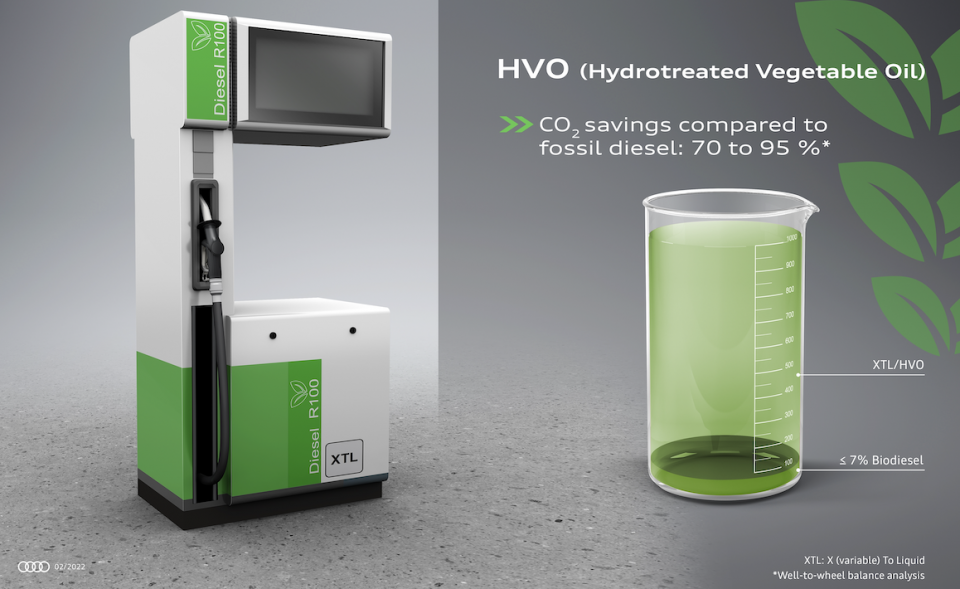Audi has approved many of its current six-cylinder diesel engines for use with HVO (hydrotreated vegetable oil).
Audi models with V6 diesel engines up to and including 210 kW (286 PS) that are leaving the company’s factories as of the middle of February can be filled up with the HVO fuel in accordance with the European standard EN 15940.
Hydrotreated vegetable oil (HVO) is a sustainable fuel that enables CO2 reductions of between 70 and 95 percent compared to fossil diesel. Another advantage of HVO is its significantly higher cetane rating, which means more efficient and cleaner combustion in comparison to conventional diesel.
Residual and waste materials, such as waste cooking oil from the food industry or residues from agriculture, are used in the manufacture of HVO. By incorporating hydrogen (hydrogenation), the oils are converted into aliphatic hydrocarbons. This modifies the properties of the vegetable oils to make them suitable for use in diesel engines. They can be added to conventional diesel, replacing fossil components, or else used unmixed as 100% pure fuel.
HVO is a so-called BTL (biomass-to-liquid) fuel. In addition to BTL, there are other manufacturing methods for synthetic diesel fuels, such as GTL (gas-to-liquid) and PTL (power-to-liquid). The latter can be obtained sustainably from renewable electricity, water, and CO2 from the atmosphere. As a collective noun for these fuels governed by EN 15940, the term XTL (X-to-liquid) is used, with the “X” standing for the original component. Fuel pumps containing these fuels are duly indicated using this symbol. Approved Audi models have an XTL sticker in the fuel tank cap.
HVO diesel is already available at over 600 filling stations in Europe – with most of them located in Scandinavia, where environmental requirements are particularly stringent. In Germany, only a few filling stations here and there offer HVO at present, although the trend is moving in the right direction. The reason for this is that the fuel standard EN 15940 has not yet been incorporated into German fuel-quality regulations (Ordinance on Fuel Quality and the Labeling of Fuel Quality – 10th Ordinance for Implementation of Federal Immission Control Act) (Verordnung über die Beschaffenheit und die Auszeichnung der Qualitäten von Kraft- und Brennstoffen – 10. BImSchV) – in contrast to almost all other EU countries.
Source: https://greenfleet.net/




